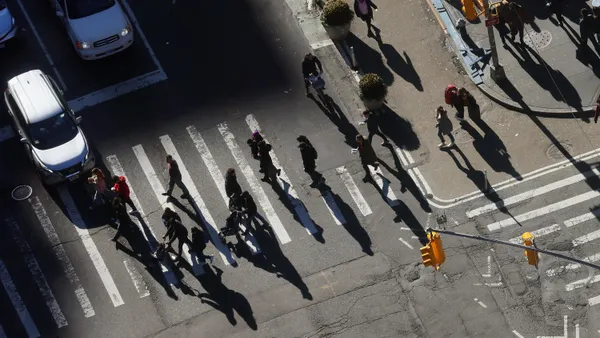Dive Brief:
- California is about to become the first state to raise its minimum wage to $15. But economists on both ends of the political spectrum are not sure if it will make life better for lower-paid workers in the Golden State, the New York Times reports.
- While high wage cities such as San Francisco may be fine, lower wage municipalities such as Fresno and Bakersfield may suffer as local businesses are required to pay a substantially higher wage and that could jeopardize low-wage jobs, the Times story explains.
- Ben Zipperer, an expert on the minimum wage at the liberal Washington Center for Equitable Growth, told the Times that the outcome of the minimum wage law is hardly certain, and can easily cut both ways.
Dive Insight:
Arindrajit Dube, an economics professor at the University of Massachusetts at Amherst who found that modest minimum wage increases don't impact employment much at all, called California's effort "an experiment."
While the jury is still out, the Times' article cites a Fresno restaurant that had to cut hours and reduce staff because of the recent $10 minimum wage law. Critics of the law say that represents a reality that will get even worse under the new law. But others in the story point out that even with the hardships generated by the new law, it will give those who do earn the higher wages more purchasing power and better lives – so it's a worthwhile tradeoff.
Speculation aside, the $15 an hour wage doesn't take full effect until 2022. Additionally, the state can freeze the law should the economy in general start to falter (it's built into the law).












